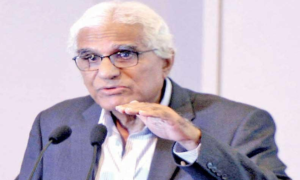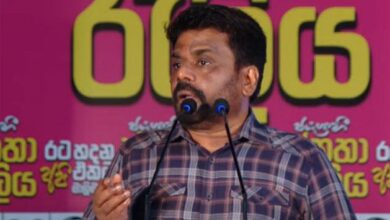Potential Bondholder Agreement Delay Unlikely to Derail Sri Lanka’s IMF Review, Says Coomaraswamy
Dr. Indrajit Coomaraswamy
Former Central Bank Governor Dr. Indrajit Coomaraswamy expressed confidence that a potential delay in securing an agreement-in-principle (AIP) with Sri Lanka’s private bondholders would not adversely affect the second review of the International Monetary Fund (IMF) program. Speaking at an informative forum organized by CA Sri Lanka in Colombo, Dr. Coomaraswamy addressed concerns surrounding the ongoing negotiations and outlined the country’s progress in meeting IMF criteria.
Rothschild, the financial advisor to the bondholder group, is currently reviewing the government’s proposal and will present recommendations to the bondholder group in due course, Dr. Coomaraswamy explained. Despite acknowledging that this process could take some time, he expressed confidence that, based on the recommendations of their advisors, the bondholders would likely reach an AIP with the government, possibly within the timeframe of the second review of the IMF program.
In the event of a delay, Dr. Coomaraswamy suggested that the IMF would grant Sri Lanka some leeway, provided the negotiations continued in ‘genuine and good faith.’ He emphasized that the country had made significant strides in stabilizing the economy, meeting IMF criteria ahead of the second review, scheduled to commence on March 7.
Dr. Coomaraswamy pointed out that the IMF’s formal assessment during the second review would evaluate Sri Lanka’s progress in meeting key commitments under the Extended Fund Facility arrangement. The assessment would also be considered in the context of the forthcoming 2024 Article IV consultation, which evaluates the country’s overall economic health.
The former Central Bank Governor highlighted the importance of aligning the AIP with private bondholders with the in-principle agreements reached with bilateral creditors late last year. Failure to do so, he cautioned, could lead to complications reminiscent of the Zambia case, where back-and-forth negotiations occurred between different creditor groups.
While Sri Lanka submitted an ‘enhanced’ proposal to bondholders last month through its advisor Lazard, Dr. Coomaraswamy did not disclose specific details. He did, however, note that the government was open to the idea of linking debt restructuring with macroeconomic performances in principle.
As the IMF program review approaches, Sri Lanka navigates a complex web of negotiations and commitments, striving to secure agreements with both private bondholders and bilateral creditors to pave the way for economic stability and recovery.





